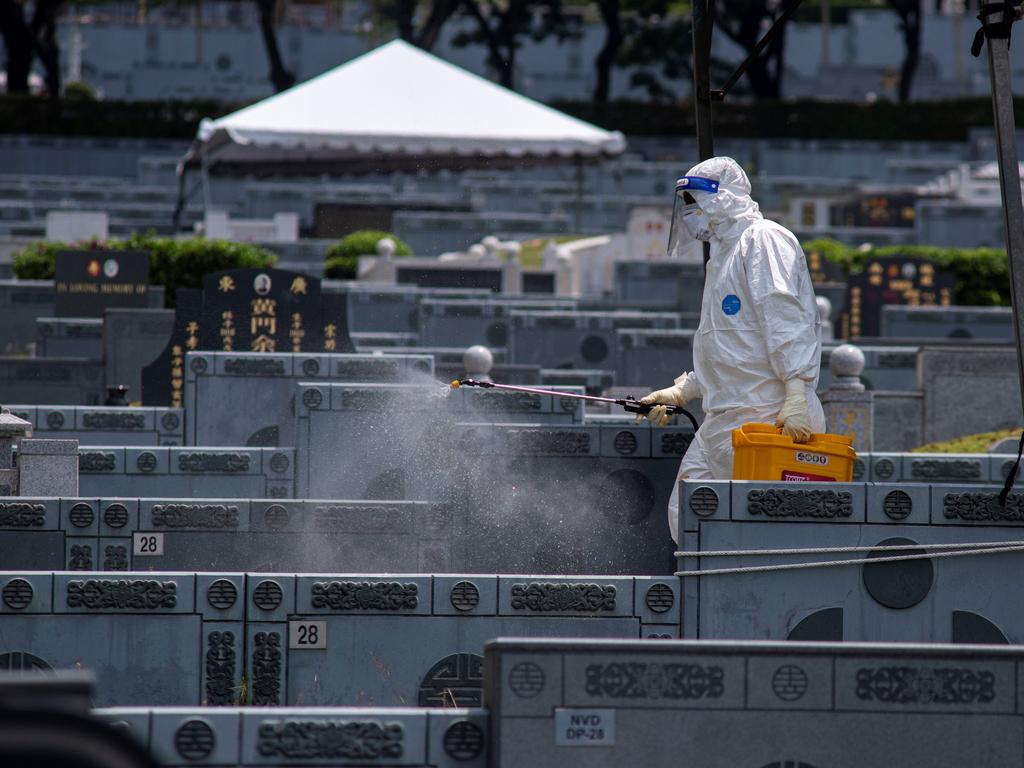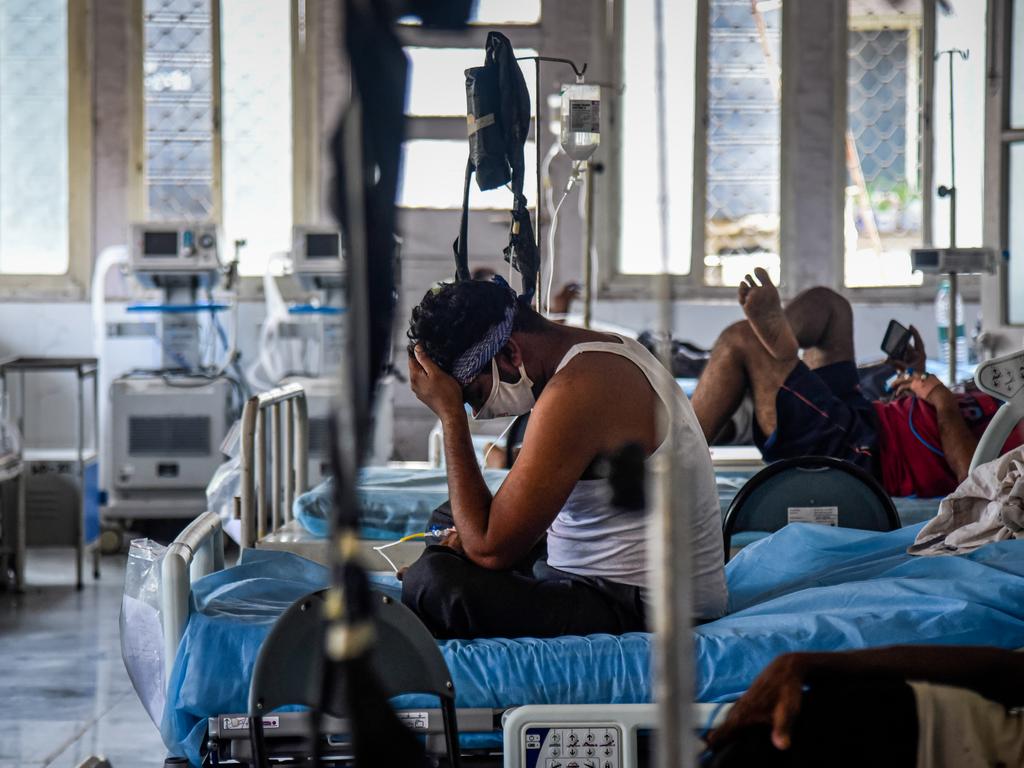Extreme peril facing Australia as pandemic hits fresh milestone
New strains of Covid-19 are breaking through containment lines. And the world is already worse off than it was for the entirety of 2020.

The Covid-19 pandemic passed a disturbing milestone last weekend. More than 83.6 million people have been infected since January 1.
That’s the same number as for the entirety of 2020 – despite 1.7 billion vaccines having been distributed worldwide.
It’s not that the vaccines aren’t having an effect. The United States has recorded a significant slowdown in new infections. The UK and Italy also are reporting positive outcomes.
Elsewhere, though, Covid-19 appears to be exploding through populations.
Brazil remains a basket-case. And Timor-Leste, Cambodia, Laos, Papua New Guinea and Thailand, in particular, are experiencing dramatically high infection rates.
And that’s despite Southeast Asia having being hailed a safe haven after largely dodging the pandemic bullet last year.
Why?
Tourists. Complacent hotel quarantine. And porous borders.
While similar indiscretions had been previously quickly contained, new airborne virus strains are finding ways to spread through populations.
“So far, we are lucky that we did not have large epidemics here in Australia (except one in Melbourne last winter), but that may happen anytime,” says the director of infectious diseases intelligence at UNSW Sydney, Dr Abrar Chughtai.
The cost of complacency
Southeast Asia appeared blessed.
Borders were controlled. But life inside remained essentially unchanged – with “business as usual” at markets, malls, temples and bars.
Was it the humidity? Was it the lifestyle? Had other local infections conferred some immunity?
But, in February, everything changed.
The virus took hold.

Cambodia, Laos, Thailand are in lockdown. Malaysia is being overrun. Even Taiwan – which went 255 days without reporting any local infections last year – is facing uncontained outbreaks.
The cause?
Tourists.
According to Cambodian media, a group of Chinese nationals flew in from Dubai aboard a private jet. They bribed a hotel quarantine security guard to skip the mandatory 14-day quarantine requirements. Then they went clubbing to enjoy Phnom Penh’s night-life.
The problem was two of them were carrying the virus. And at least one of them had the supremely contagious British variant.
Within a month, local infection rates erupted from an average of 10 new cases each day to almost 500. By May – despite lockdowns – that daily figure had peaked at 900.
Laos is also struggling with an outbreak after three Thais illegally crossed the Mekong River to visit a friend. They visited several bars and a temple. That nation is now in its second month of lockdown as a result.
Now numbers are soaring in neighbouring Thailand. It finds itself besieged with infections “leaking” over the borders from Cambodia, Laos, Malaysia — and Myanmar.
Danger Zones
An unknown factor in Southeast Asia’s pandemic crisis is Myanmar.
Back in January, before the coup, the nation of 55 million people was working to contain an outbreak producing some 500 new infections per day.
But the civil war which erupted in February has put the brakes on testing, vaccination and even treatment.
Clashes between protesters and the military are happening daily. Injuries are numerous. And more than 4300 citizens have been detained.
Meanwhile, Malaysia’s health system is struggling to cope with rising infection rates.
Even though a state of emergency was declared in January, inconsistent implementation of the rules has given the virus easy access.
Malaysia’s rate of infections is currently the highest in Southeast Asia, at 16,000 cases per million.

Prime Minister Muhyiddin Yassin’s government is facing mounting outrage.
“They can call me ‘stupid prime minister’. It’s OK,” he told local media. “I know how difficult it is to manage, but this is our joint responsibility.”
But his government has been attacked for not imposing stricter controls on movement, uniform enforcement and harsher penalties against lockdown violations.
Accusations are also flying that recipients are receiving less than the stipulated dose of available vaccines.
“Many are concerned that a strict lockdown will damage the economy,” infectious diseases specialist at the University of Malaya Adeeba Kamarulzaman told Reuters. “But the impact is going to be worse or go on for much longer if we continue with half-hearted measures.”
When luck runs out
Associate professor in epidemiology at La Trobe University, Hassan Vally, says we’re in a race to get Australia vaccinated before these more contagious virus variants break loose here.
“The news of community transmission involving the Indian variant reinforces that the freedoms we have right now in Australia are built on precarious foundations, and things could change at any time. As has always been the case, we can look internationally for examples of what we want to avoid – instances where complacency crept in and the virus took advantage.”
Dr Chughtai says Australia’s population is particularly vulnerable because of its low vaccination rates “even compared to many low-income countries”.

“We should acknowledge the risk of airborne transmission of SARS-CoV2 and consider designated quarantine facilities for returning travellers,” he adds. “We know that the B. 1.617 strain is highly transmissible and has led to a very large epidemic in India and a few other countries. Moreover, viruses spread more quickly during winters. So we should use all available non-pharmaceutical strategies (lockdown, avoiding mass gathering, mask use etc) to control this outbreak. If this is out of control, this may be more devastating than the previous outbreaks.”
Given the experience of Southeast Asian nations, virologists say the peril Australia faces with the new outbreak is extreme.
“It is clear now that we are dealing with a highly contagious variant of the virus, which must be dealt with before it is too late,” says Associate Professor of Microbiology at RMIT University Taghrid Istivan.
“Given that we are heading into winter, in addition to the hesitancy in getting the AstraZeneca vaccine by older eligible recipients, and that many aged care residents haven’t yet got their first COVID-19 shot yet, and with the fast-growing number of positive cases detected in the past (few) days, I hope it is not too late.”
Jamie Seidel is a freelance writer | @JamieSeidel




